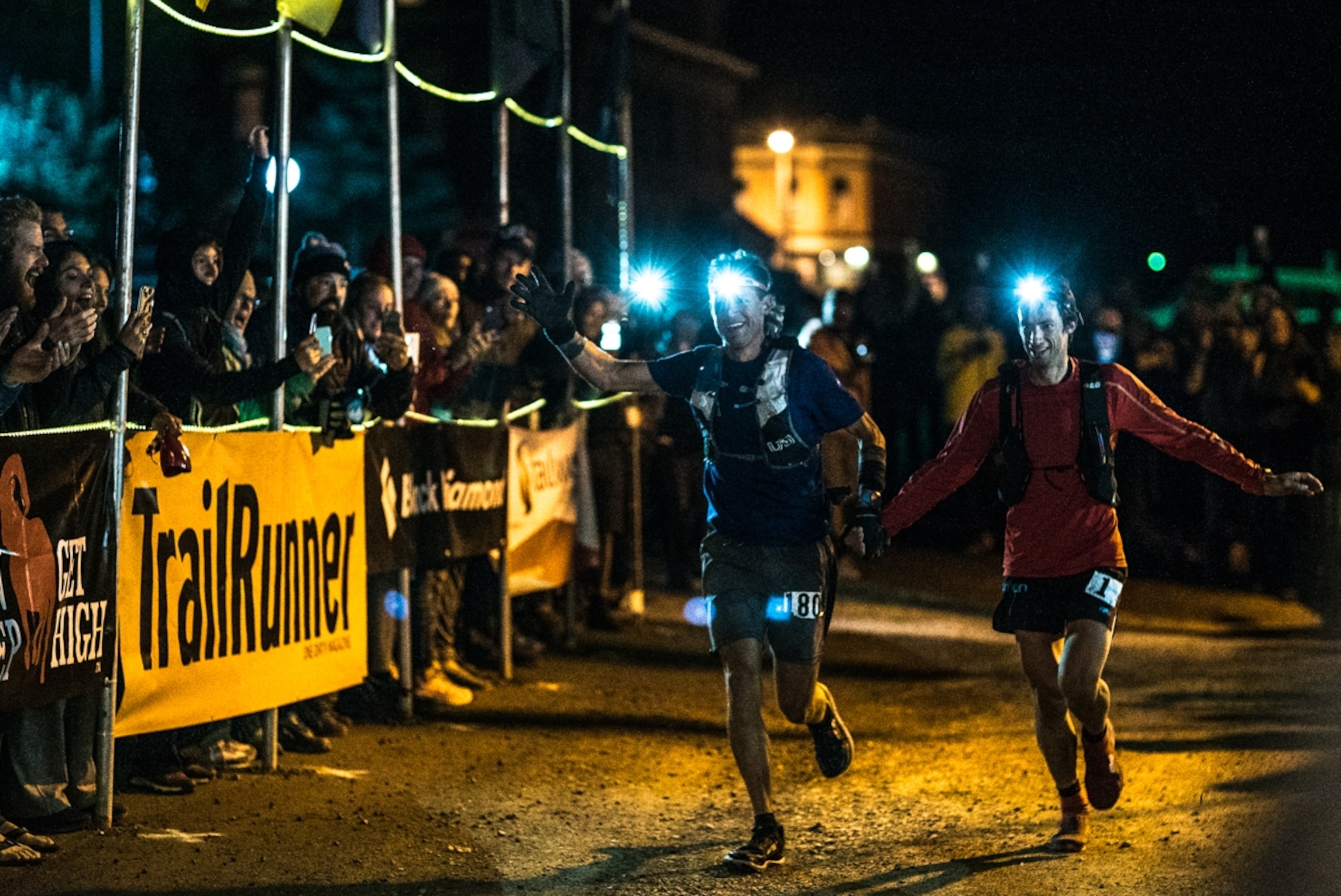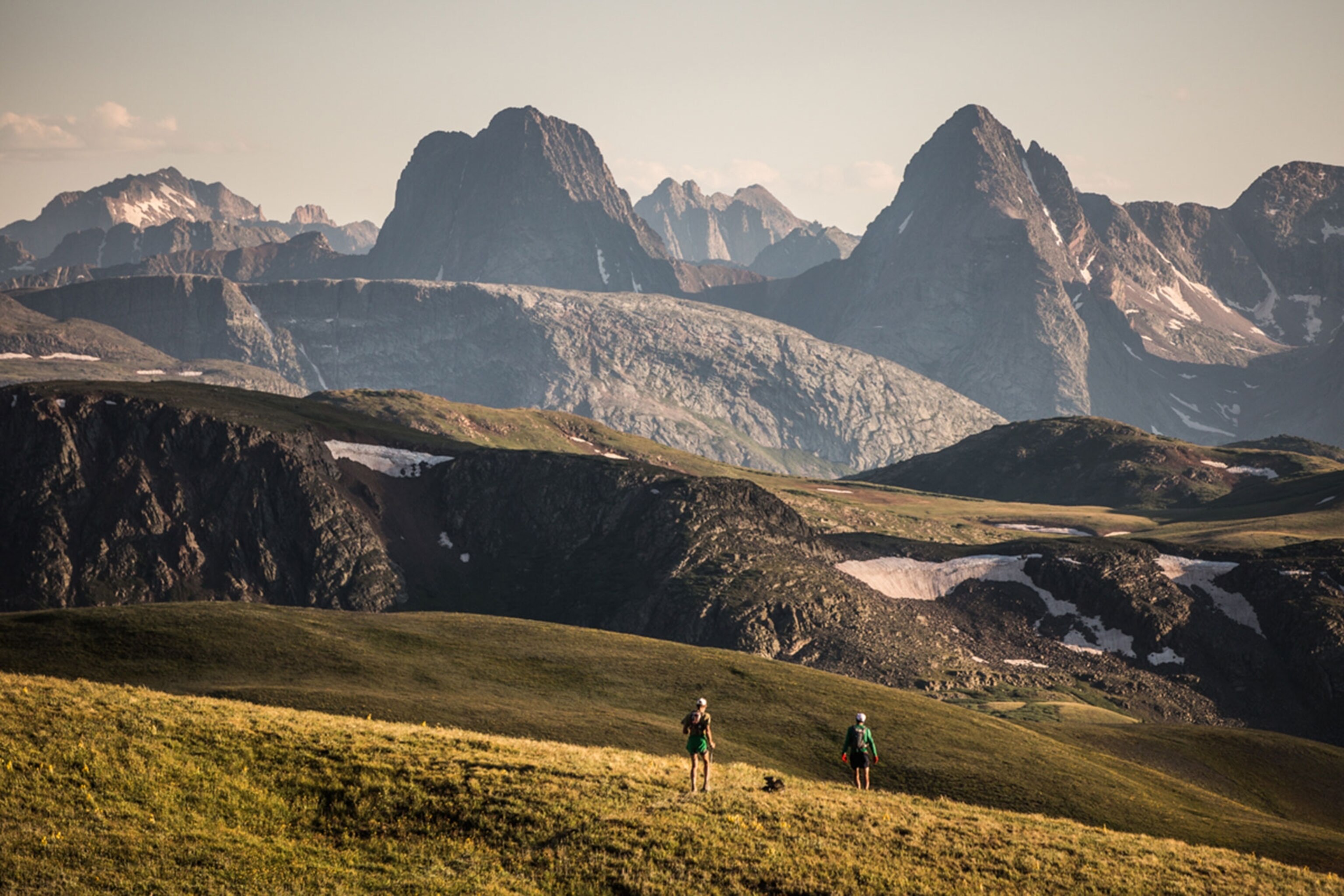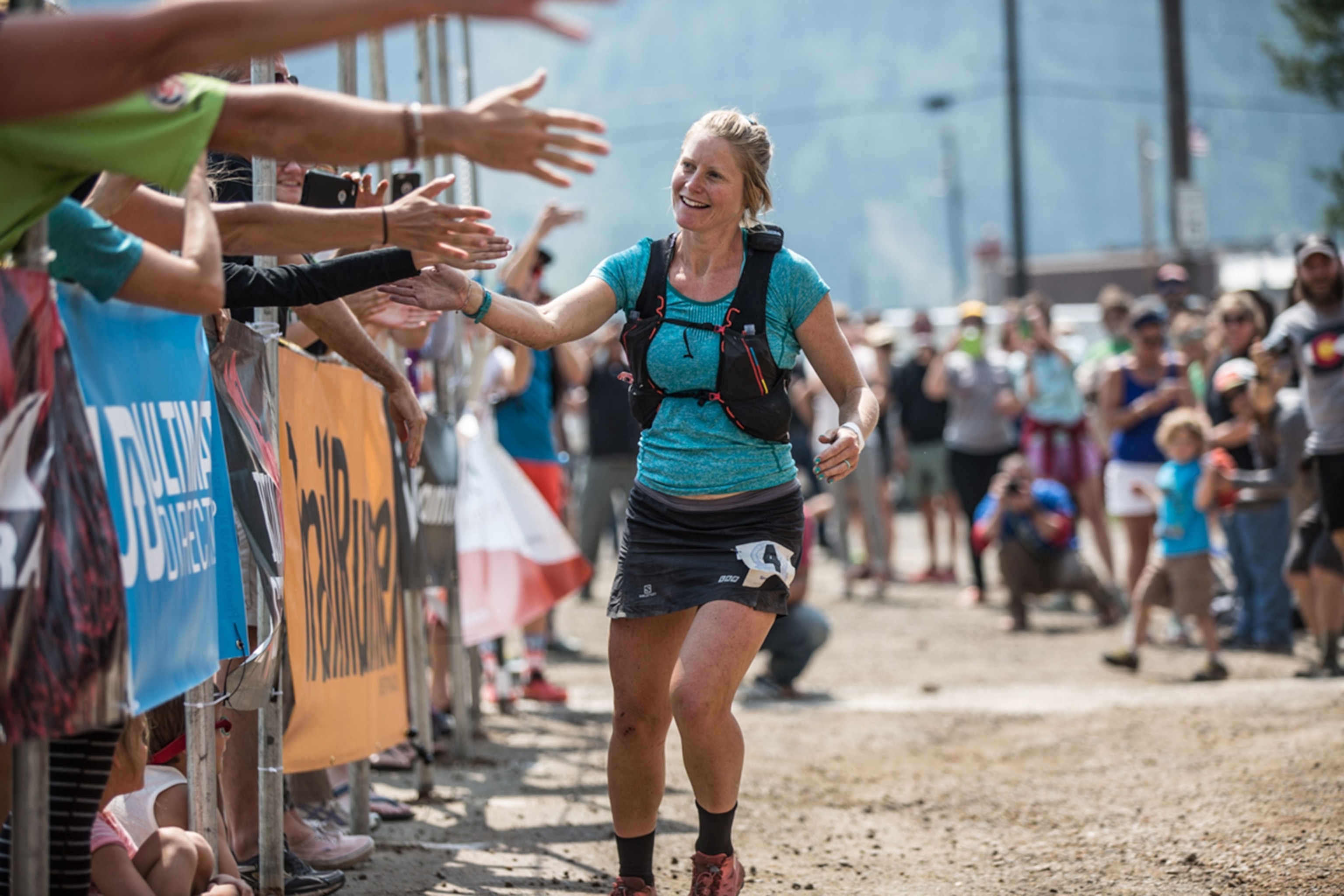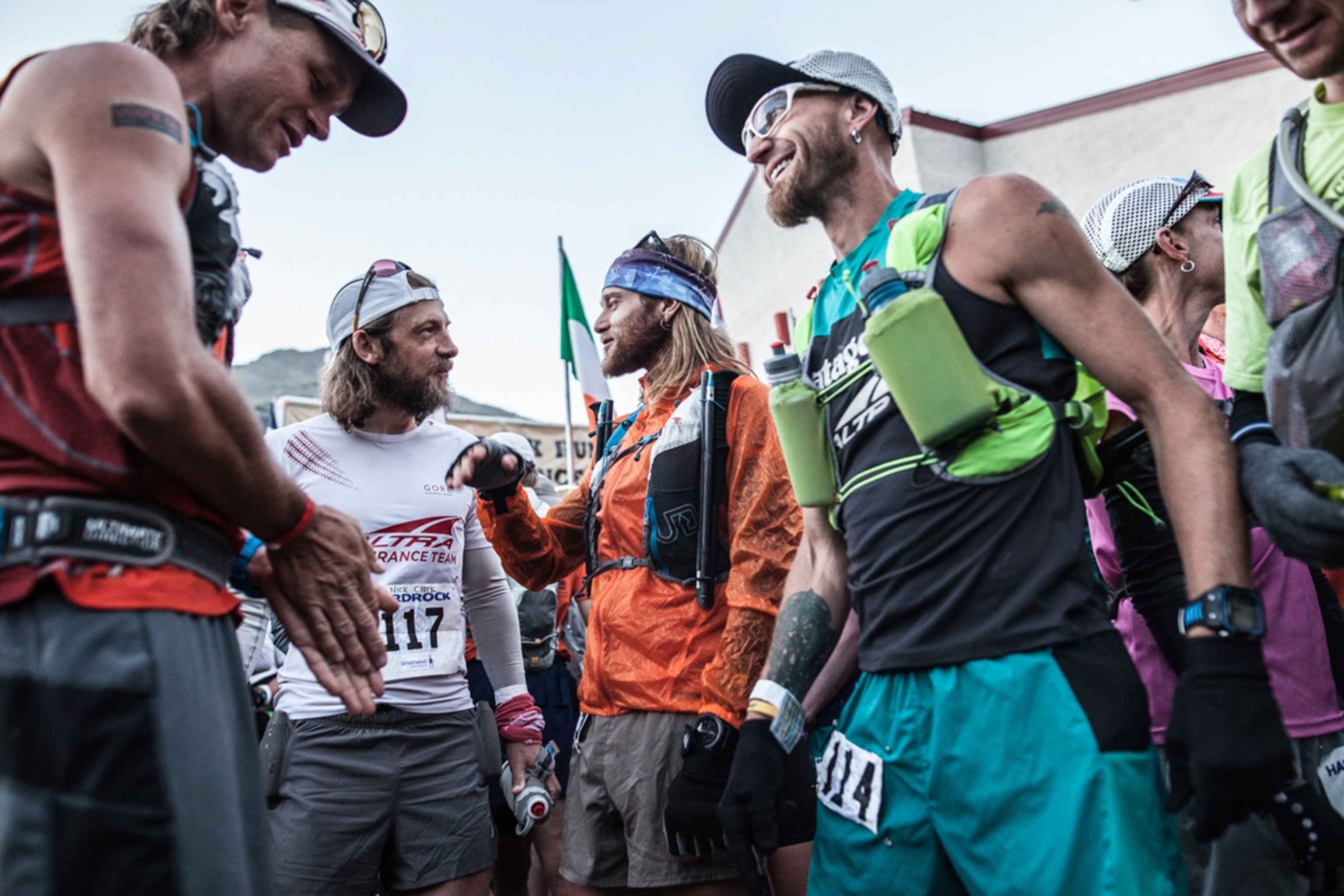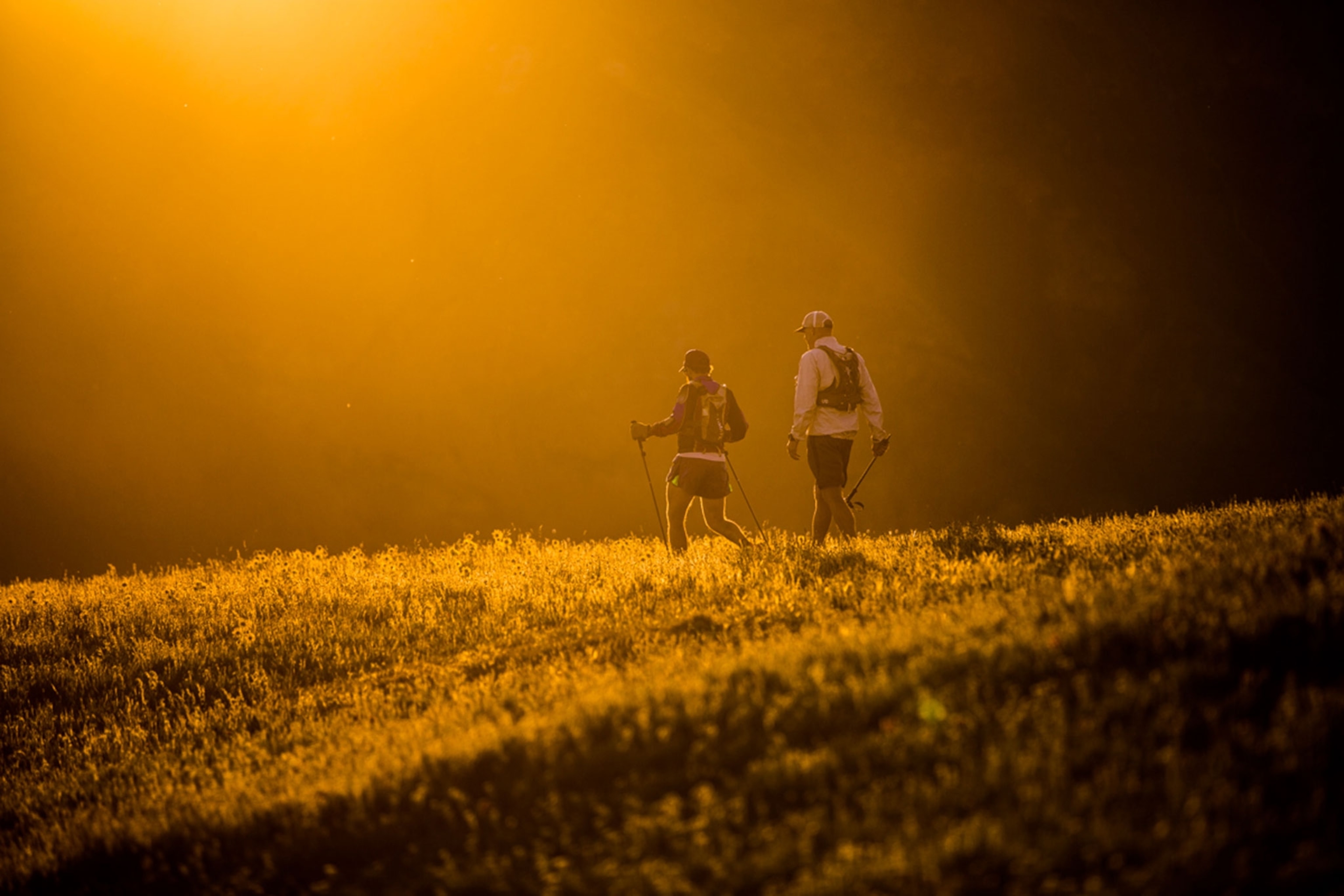Camaraderie Wins in the World’s Toughest Footrace
Reigning champ and underdog team up to share ultrarunning's top prize.
Before dawn on Saturday, down a dirt street past the post office in the old mining town of Silverton, Colorado, two runners came into sight, headlamps bobbing. The few hundred people gathered at the finish line of the Hardrock Hundred Endurance Run erupted with cheers, then grumbled with confusion. Why were the two front-runners still together? Were they going to sprint and race the last block?
There were updates from the aid stations along the course late in the race stating that Durango’s Jason Schlarb was running with two-time champion and race favorite Catalan Kilian Jornet, also our 2014 People's Choice Adventurer of the Year. This was not uncommon for Jornet, ultrarunning’s reigning king who is known for casually running with competitors for the company until he decides it’s time to go for the win or course record—a tactic he used in his previous two Hardrock victories.
This time, however, there was no dramatic solo reemergence from the wilderness. Instead, the two ultrarunners joined hands in the finishing chute—flagged with banners and buttressed by a massive rock painted with the Hardrock logo—then simultaneously kissed the rock, a boulder in town that marks the race’s finish.
Hardrock has always considered itself more of a run than a race and has an overriding philosophy of people against the mountains, not necessarily against each other. The extremely difficult course has an average finish time over 41 hours, an average elevation of 11,000 feet (3,353 meters), 13 passes above 12,000 feet (3,658 meters), and a total elevation gain of more than 33,000 feet (10,058 meters).
From the beginning of the race Schlarb, Jornet, and Xavier Thévenard (who finished in third place) were pushing each other at the front.
“At the beginning we ran together more competitively, and we really pushed each other,” said Schlarb. “After catching Kilian on Handies Peak [14,048 feet, or 4,282 meters], it became more of a collaboration.”
By the mile 72 aid station in Sherman, Jornet and Schlarb had shed Thévenard and were 20 minutes ahead of course record.
As the finish line approached, Jornet said to Schlarb, “After running all night together, I’d love to run in with you.” They had covered about 80 miles (129 kilometers) of the course together. “I was hoping for the same thing,” said Schlarb. “It just felt right.”
The two ran the second fastest time in race history, finishing the loop in 22 hours, 58 minutes, 28 seconds.
Co-winners in the race is unusual but not unprecedented. “This happened once before, in 1997, when we had Mark Hartell and Mark McDermott, both from Great Britain, finish first together,” said race director Dale Garland. On Jornet and Schlarb sharing the win, he said, “I thought it was a class act by both of them. This really represents the true spirit of what ultrarunning should be and what Hardrock is.”
More rare than co-winners at the Hardrock is good weather throughout. The permitted 152 entrants, who have 48 hours to complete the 100.5-mile (161.7-kilometer) loop course, are usually subjected to freezing nighttime temperatures and peppered with lightning and hale. This year’s event was the warmest Hardrock race since its first running in 1992. (Read about the growing popularity of hundred-mile races.)
The weather suited last year’s champion, New Zealand’s Anna Frost, who once again dominated the woman’s race. Pressured by Spain’s Emma Roca, Frost ran out in front of the competition all day, besting Roca by 34 minutes with a finish time of 29 hours, two minutes.
Oregon’s Jeff Browning finished fourth and in doing so completed a unique hundred-mile race double. Just 19 days prior he was third at the Western States 100-mile Endurance Run in Squaw Valley, California. This year, for his third Hardrock finish, Browning ran his fastest time: 25 hours, 42 minutes. This gave him a cumulative Western-Hardrock double time of 42 hours, 12 minutes—beating the previous combined-time record double by one hour, 20 minutes. “I wanted to put a stamp on it,” said Browning.
